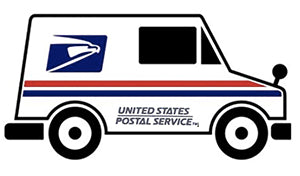Tips for Traveling in Ireland and the Celtic Isles
Traveling to Ireland and the Celtic Isles? Fabulous! The following is a group of ideas, suggestions, and dos and don'ts that will help make your trip one of a lifetime.
Celtic Isles 101
You probably know that the island of Ireland is divided into two distinct and separate countries: Republic of Ireland and Northern Ireland.
Republic of Ireland — The history of the island of Ireland and its people is long and complicated but for travel sake we will refer to the Republic of Ireland as “Ireland.”
Northern Ireland — Most northern 6 counties of the island of Ireland. You may here some folks from the Republic of Ireland referring to Northern Ireland villages or counties with a slightly different take on their names...such as in a Republic of Ireland citizen may refer to Londonderry as Derry, its name before it became part of the United Kingdom.
United Kingdom — Northern Ireland, Scotland, Wales, and England — The people of Northern Ireland, Scotland and Wales are British but don’t call them English, the distinction is important, it matters.
Technology and Travel
iPads and like devices are great on a trip. GPS, on the spot tourist information, and making hotel and dinner reservations can all be done while on the road.
Check to make sure your devices are dual-voltage enabled as most of Europe is 220/230V volts compared to our US 110/120 voltage. Laptops, iPads, cell phones etc will need to be recharged, know if they can handle the voltage, most Apple products can but its great to make sure. Items such as hair dryers can be purchased in the States with this dual -voltage feature as well.
You may have dual-voltage appliances but you still need an adapter to be able to plug your device into the power source. Travel adapter cubes are a great choice as they can be configured to handle several different types of electrical receptacles. Note that you may find several different configurations of receptacle in the same country, the cube can handle just about all of them. If you have several devices a small travel power strip would be a good investment also.
Cell Phones — Call, Text, and Data
Most carriers have international packages, check with yours. For $10 a day Verizon allows you to use your phone, texting, and data in Ireland and in the United Kingdom as if you were in the US. You can call any US number on your phone without incurring international calling fees, but remember if you call a number in Ireland or a call to any other country you will incur international fees just like you would if you were calling from the US. Make sure to contact your carrier before you leave on your trip.
Currency and VAT
The Republic of Ireland uses Euros; The United Kingdom—Northern Ireland, Scotland, Wales and England use British Sterling. Their exchange rates against the US dollar will differ, before you leave on your trip check the exchange rate for each, and when you make a purchase remember that exchange rate plays into the final cost of the goods.
That brings us to VAT (value added tax) that you will be charge as an additional fee at time of check out, think of it as a sales tax, however many retail prices do include this VAT but before making many or big purchases find out whether it is included or not. VAT can be as much as 20% of the cost of goods and Ireland has a program that allows you to file a claim to get the VAT back. Many retailers will help you with paperwork needed to file for the return of the VAT tax paid at the time you leave the country. Check for current rules and restrictions when in the country.
Credit Cards & Debit Cards
Not all credit cards are created equal…let me say that again…Not all credit cards are created equal. Know if your credit card charges transaction fees for foreign currency exchanges, most do. If yours is one that charges these fees it would be in your best interest to find a credit card that does not then you will have the freedom to use your credit card for all transactions, big and small. Before applying for the credit card make sure you check their currency exchange rates compared to other banks and financial institutions; usually credit cards connected to major banks have the best exchange rates.
Make sure to let your bank and credit card providers know you are leaving the country, when and where you are going. Otherwise your account maybe flagged and suspended at the worst possible moment when you are abroad.
Use your debit card for cash withdrawals. Be careful when using ATMs, some have very high fees for withdrawing money from a foreign account.
One last but very important point about using credit cards, if you think your credit card provides coverage for a rental car, check for benefits in writing. When I checked my credit card benefits sheet I found that coverage did cover most countries but excluded the Republic of Ireland and Israel. Who knew!
Packing and What to Wear
One suitcase. One! Lay out everything you think you will need and pack half of it. Seriously, dragging suitcases, computer cases, backpacks and duffle bags in and out of your vehicle is exhausting. Yes if you are on a tour much of the heavy lifting and transport will be done for you but you still have to wait for luggage to be delivered to your room, unpack and repack and set your luggage out for pickup at each location. And most tours allow you only one suitcase, make it a smaller one.
Dressing in layers allows you to peel of clothing when the weather warms up and add layers when it turns cold. Ireland can be wet even in the summer so pack a lightweight raincoat, weather resistant walking shoes and hat.
Passport and the US Embassy
Remember when booking your airline flight to book it in the exact name on your passport. If you have had a name change get your passport updated.
Make copies of your passport and carry one in another place somewhere with you in case your passport is lost or stolen, this will help if you need to assistance at the US embassy in that country. Keep a copy on your phone also.
Knowing how to contact the US Embassy in the country you are in is good to know in case of lost passports or unforeseen trouble such as accidents or death. You can go on the U.S. Embassy’s website and register your trip. Also they will send you travel alerts. It is called the Smart Traveler Enrollment Program https://step.state.gov/step/
Car Rentals and Driving
Driving in Ireland can be a bit of a challenge and stressful but very doable. The big trick is remembering that Ireland and the UK drive on the opposite side of the road from US drivers. You drive on the left side of the road which makes everything seem a bit backwards from how you are use to driving. Pulling into active lanes of traffic and making turns, passing on highways, and navigating roundabouts can all seem a little daunting but with a little time on the road you will get the hang of it.
When renting a car pick one with an automatic transmission, a manual transmission means you will be shifting gears using your left, not your right hand which is one more thing you will have to orchestrate while driving.
Keep in mind that there are some major highways in Ireland but you will also have to navigate some pretty narrow one-way roads if you venture into Ireland’s countryside and villages, which I highly recommend. Just remember to find a place to stay well before dark as some villages and most roads are not well lit, add a little rain and you have tripled your stress level.
Make sure your US driver license is up to date and will not expired while on your trip. There are some age restrictions set by car rental companies so make sure you are eligible to drive.
For the best rates arrange for your rental car before your trip, you will definitely save money. Choose the smallest car that will accommodate passengers and there luggage.
I mentioned this under "Credit Cards" but this is very important. If you think your credit card provides coverage for a rental car, check your current benefits. When I checked my credit card benefits sometime back I found that coverage did cover most countries but excluded the Republic of Ireland and Israel.
Lodging
AirBnB and other travel sites can help you book your accommodations and it is advisable that you pre-book at least your first night somewhere close to you arrival airport. Tourist information centers, identified with a giant “I” sign out front can help you with lodging in the area or at your daily destination. Summer is a very busy time for tourist so pre-booking a day in advance is a must.
DOs and DON’Ts
DO remember to respect the people and their customs.
DON’T try to speak with an Irish or Scottish accent no matter how good you think yours is, it’s annoying at the very least, insulting at its worst.
DO engage people you meet and ask about local pubs, craft shops and eateries favored by the locals.
DON’T criticize how and what you are served, if its not like the food at home its because you aren’t at home!
DO feel free to talk with locals about politics if that is your thing but be forewarned the Irish often have a deeper knowledge and understanding of US politics than we do.
DON’T joking refer to the “Troubles” or the IRA, this is a very serious and deeply felt issue which has touched many in Ireland and the UK and still does today.
Do enjoy all the formal tourist sites, but be alert for local events and happening such as the village sheep dog trials I once came upon while driving in rural Ireland. Or the local village summer festival complete with horse racing (and betting) in a local farmer's field, best dapperly dressed couples competition, and best of show baking contest…it was wonderful!




